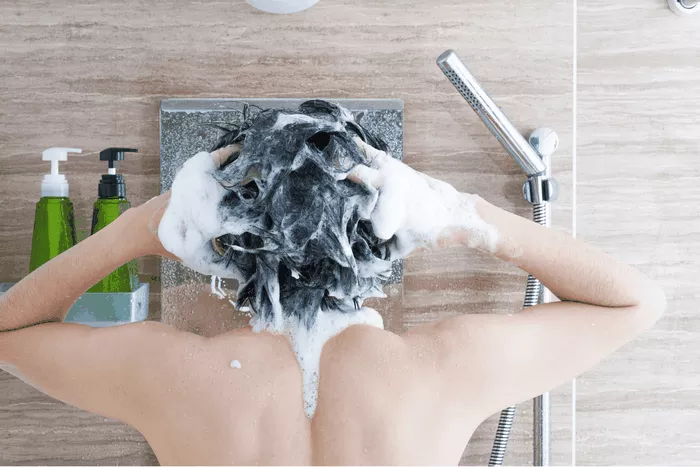Hair fall after washing can be a distressing experience for many individuals, prompting concerns about the health and vitality of their hair. While it’s normal to shed some hair during the washing process, excessive hair loss can raise alarm bells and lead to questions about underlying causes. In this comprehensive article, we delve into the reasons behind hair fall after washing, exploring both common culprits and effective solutions to address this issue.
Understanding the Hair Growth Cycle
Before delving into the reasons for hair fall after washing, it’s essential to grasp the fundamentals of the hair growth cycle. Hair growth occurs in three main phases:
1. Anagen Phase: This is the active growth phase where hair follicles produce new hair cells. The duration of the anagen phase varies from person to person and can last anywhere from two to seven years.
2. Catagen Phase: In this transitional phase, hair growth slows down, and the hair follicle shrinks. This phase lasts for about two to three weeks.
3. Telogen Phase: Also known as the resting phase, hair follicles remain inactive during this stage. Shedding of old hair occurs, and new hair begins to grow underneath. The telogen phase typically lasts for around three to four months.
After the telogen phase, the hair follicle re-enters the anagen phase, and the cycle repeats itself. Understanding this cycle is crucial for comprehending the reasons behind hair fall after washing.
Common Causes of Hair Fall After Washing
Several factors can contribute to hair fall after washing, ranging from lifestyle choices to underlying medical conditions. Let’s explore some of the most common culprits:
1. Mechanical Damage: Vigorously rubbing wet hair with a towel or using harsh hairbrushes can cause mechanical damage, leading to hair breakage and subsequent shedding. It’s essential to handle wet hair with care and opt for gentler drying methods, such as blotting with a soft towel or using a microfiber hair wrap.
2. Chemical Damage: Overuse of hair styling products, frequent dyeing, and exposure to harsh chemicals in shampoos and conditioners can weaken the hair shaft, making it more prone to breakage. Opting for sulfate-free and gentle hair care products can help minimize chemical damage and reduce hair fall after washing.
3. Heat Styling: Excessive use of heat styling tools such as blow dryers, straighteners, and curling irons can damage the hair cuticle, leading to dryness, brittleness, and increased hair fall. To minimize heat damage, use these tools on low heat settings and apply a heat protectant spray before styling.
4. Nutritional Deficiencies: Inadequate intake of essential nutrients, such as vitamins, minerals, and protein, can compromise hair health and contribute to hair fall. Nutrients like biotin, vitamin E, and omega-3 fatty acids play a crucial role in promoting hair growth and strength. Incorporating a balanced diet rich in fruits, vegetables, lean proteins, and healthy fats can help support optimal hair health.
5. Hormonal Imbalance: Fluctuations in hormone levels, such as those experienced during pregnancy, childbirth, menopause, or thyroid disorders, can disrupt the hair growth cycle and lead to increased shedding. Addressing underlying hormonal imbalances through proper medical evaluation and treatment can help restore hair health.
6. Stress and Anxiety: Chronic stress and anxiety can trigger hormonal changes in the body, leading to a condition known as telogen effluvium, characterized by excessive shedding of hair. Practicing stress management techniques such as mindfulness, meditation, yoga, and adequate sleep can help mitigate the effects of stress on hair health.
7. Medical Conditions: Certain medical conditions such as alopecia areata, autoimmune disorders, scalp infections, and underlying health issues can contribute to hair fall after washing. Seeking medical advice from a dermatologist or trichologist can help diagnose and treat underlying medical conditions effectively.
Effective Solutions to Reduce Hair Fall After Washing
While experiencing hair fall after washing can be concerning, implementing the following strategies can help minimize shedding and promote healthier, stronger hair:
1. Gentle Hair Care Practices: Handle wet hair with care, avoid vigorous rubbing or pulling, and use a wide-tooth comb or detangling brush to gently remove knots and tangles. Opt for mild, sulfate-free shampoos and conditioners specifically formulated for your hair type.
2. Moisturizing Hair Treatments: Incorporate deep conditioning treatments, hair masks, and leave-in conditioners into your hair care routine to nourish and hydrate the hair shaft, reducing breakage and brittleness.
3. Scalp Massage: Regular scalp massage stimulates blood circulation to the hair follicles, promoting nutrient delivery and hair growth. Use your fingertips to gently massage the scalp in circular motions for a few minutes before shampooing.
4. Balanced Diet: Ensure adequate intake of protein, vitamins, minerals, and essential fatty acids through a well-balanced diet rich in fruits, vegetables, lean proteins, whole grains, and healthy fats. Consider incorporating supplements such as biotin, vitamin D, and omega-3 fatty acids if necessary, after consulting with a healthcare professional.
5. Stress Management: Practice stress-reducing techniques such as meditation, deep breathing exercises, yoga, and regular physical activity to alleviate stress and promote overall well-being. Adequate sleep is also essential for maintaining optimal hormonal balance and supporting healthy hair growth.
6. Professional Consultation: If hair fall persists despite implementing lifestyle changes and home remedies, seek professional advice from a dermatologist or trichologist. They can conduct a thorough evaluation, identify underlying causes, and recommend appropriate treatment options, such as topical medications, oral supplements, or procedural interventions.
In conclusion, while experiencing hair fall after washing can be concerning, it’s essential to understand that shedding some hair is a natural part of the hair growth cycle. By adopting gentle hair care practices, nourishing the hair from within, managing stress levels, and seeking professional guidance when needed, you can minimize hair fall after washing and promote healthier, stronger hair in the long run.


